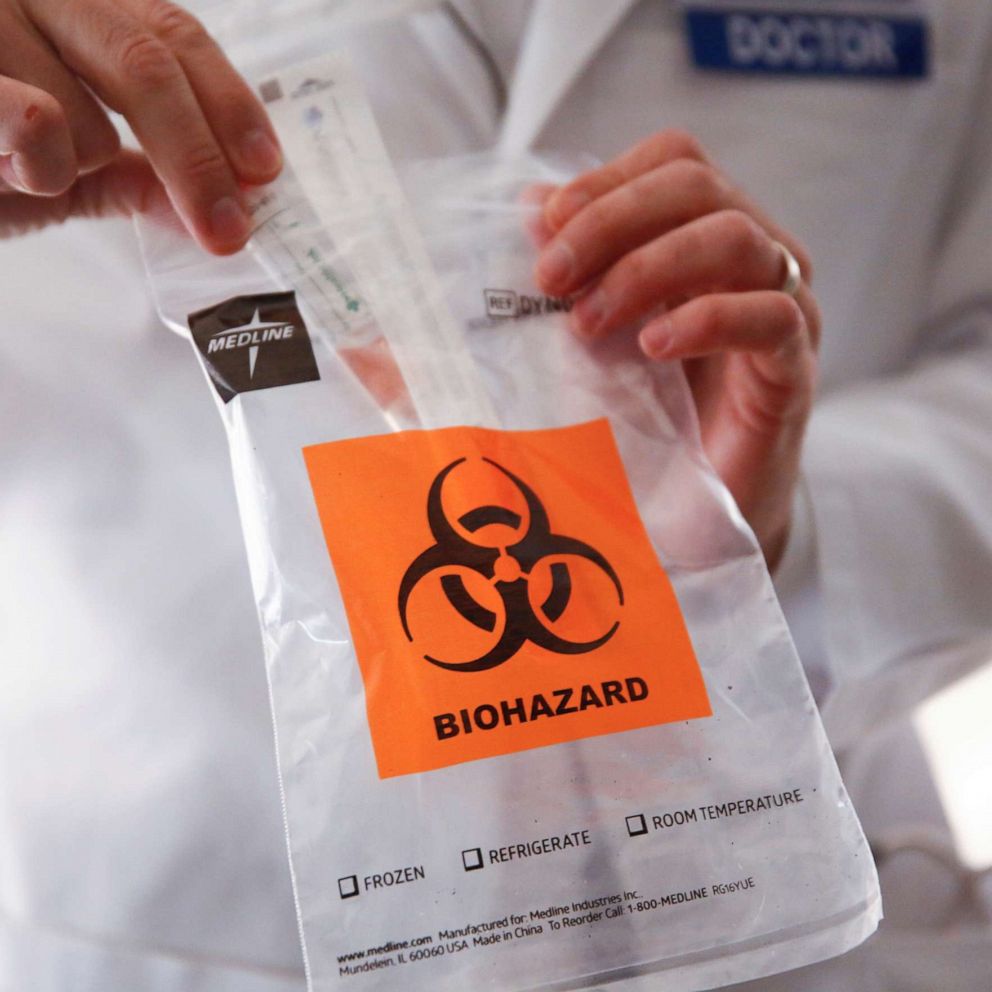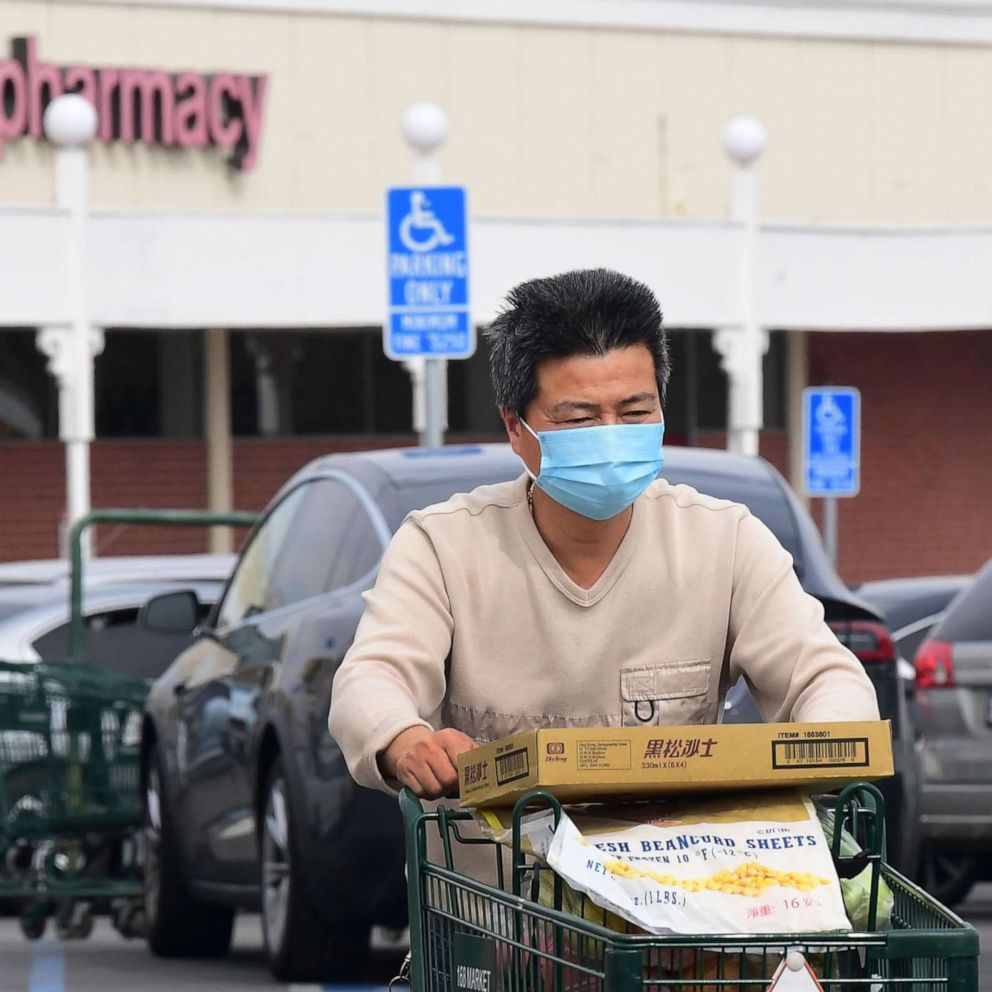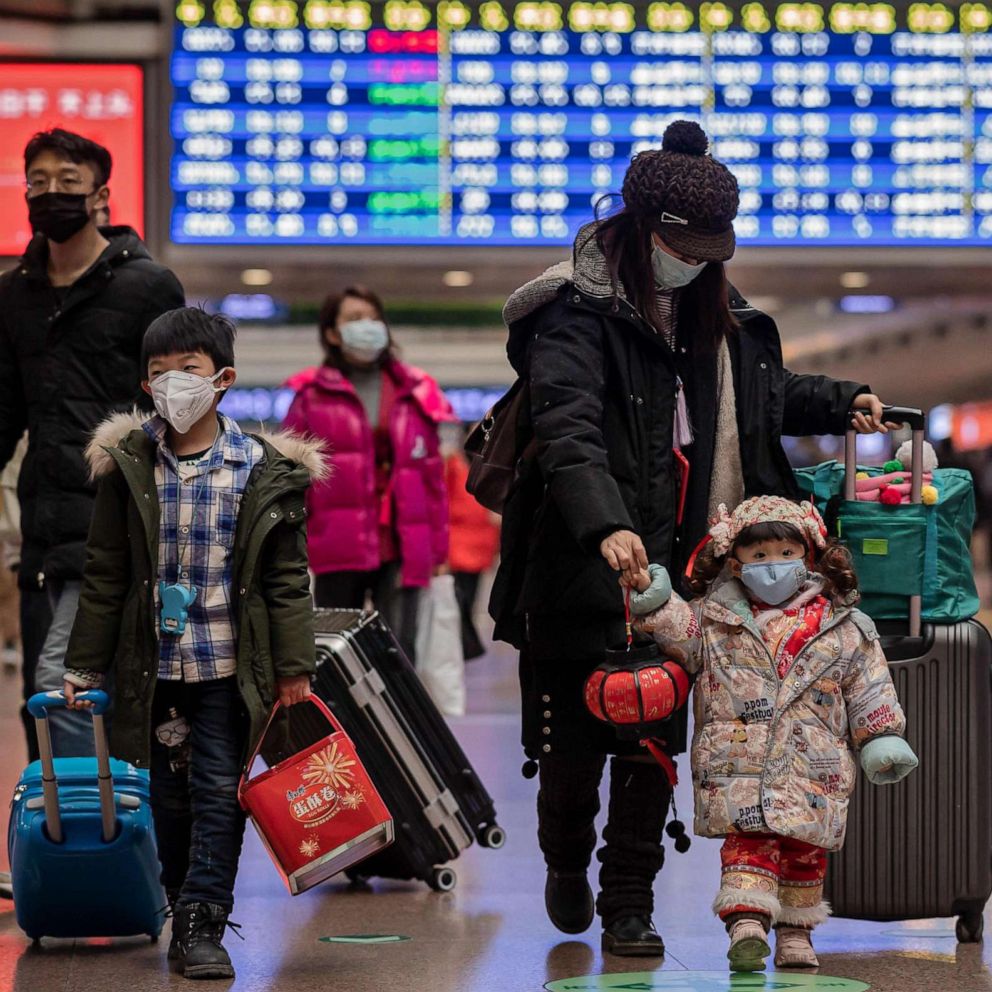State prisons prepare for coronavirus but federal prisons not providing significant guidance, sources say
Prisons could face major hurdles if officers or prisoners contract COVID-19.
As public health officials in communities across the country prepare for the continued spread of the coronavirus, both state and federal prisons could face major hurdles if officers or prisoners contract COVID-19.
ABC News has reviewed an internal document sent to the nation's Bureau of Prisons facilities, and sources said the document doesn’t provide adequate answers to combating the virus.
The internal document details proper protocols including guidance from BOP stating an employee can’t return to work if by doing so they would jeopardize the health of others.
Tune into ABC News Live at noon ET every weekday for the latest news, context and analysis on the novel coronavirus, with the full ABC News team where we will try to answer your questions about the virus.
The document doesn’t touch on visitation for inmates or transporting them facility to facility. Courthouses in the Southern District of New York have already sought to restrict entry to people who traveled to China, South Korea, Japan, Italy and Iran and anyone who has been in contact with or has COVID-19.
One source at a Florida facility told ABC News that the Bureau doesn’t have the ability to order more cleaning supplies and doesn’t have enough wipes to sanitize the inmate transport buses. The source also said there aren’t enough N95 masks to cover half the staff, adding that most are of small size. Photos reviewed by ABC News of the facility show empty hand sanitizer pumps placed throughout.
The source said there are currently more questions than answers.
On Wednesday, the Bureau of Prisons declined to provide guidance on what they were doing citing the fluid nature of the virus. However, they did say they are using a "comprehensive approach"
"The BOP has an internal web-based system for reporting infectious diseases and outbreaks, allowing access to health care and correctional professionals system-wide," a spokesman told ABC News in an email. "The Bureau of Prisons is providing information to staff and inmates regarding practicing good hygiene and other information regarding BOP's initial and preventive preparations. As the COVID-19 outbreak continues to evolve, the BOP updates and refines its recommendations, guidance, and protocols, and will continue to provide helpful information to staff, inmates and federal, state and local partners."
Currently, they are not stocking COVID-19 test kits and "testing of inmates will occur if clinically warranted."
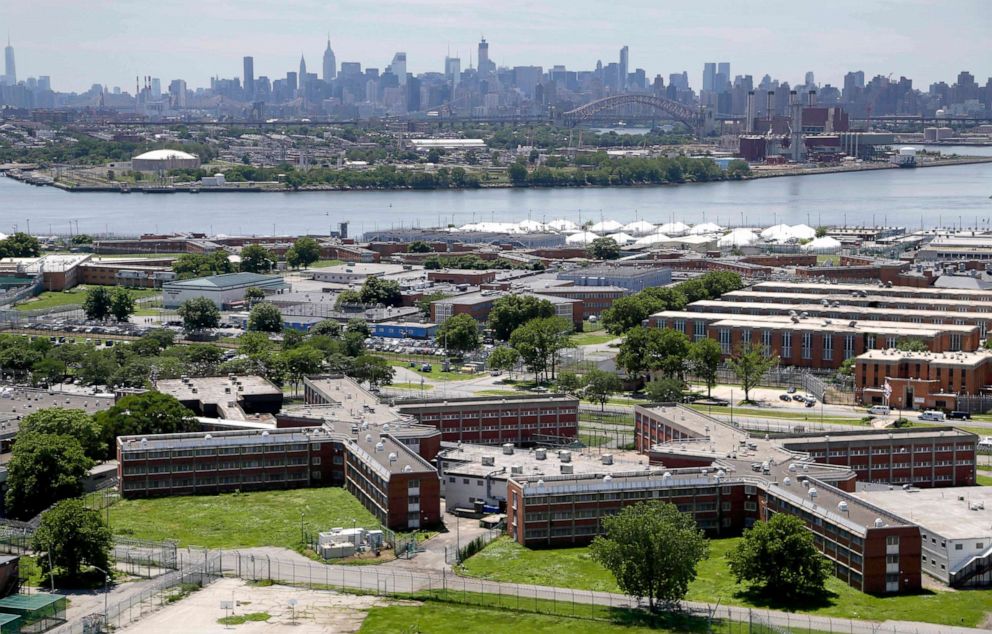
The spokesman said as of Wednesday, there are no known cases of the virus at any BOP facility.
"The Bureau of Prisons is providing information to staff and inmates regarding practicing good hygiene and other information regarding BOP's initial and preventive preparations. As the COVID-19 outbreak continues to evolve, the BOP updates and refines its recommendations, guidance, and protocols, and will continue to provide helpful information to staff, inmates and federal, state and local partners," a bureau spokeswoman told ABC News over the weekend.
Joe Rojas, the Southeast regional representative for the Council of Prisons, the union that represents BOP officers, told ABC News that leaders have to think of the "worst-case scenario."
"You have one inmate that has a virus, it'll affect everybody, staff and inmates, because it's in a confined space," he continued.
Rojas said that there is "no leadership at all" when dealing with the potential for coronavirus in federal prisons.
State prison facilities around the country, from large state facilities to smaller county facilities, are also preparing for the virus.
A spokeswoman for the California Department of Corrections told ABC in a statement that there is a working group between "health care executives, public health nurses, custody and prison operations executives, occupational safety experts and department planners responsible for business continuity."
They say that health services will continue.
"We are also ensuring that inmates coming into the CDCR system, or transported to county jail to attend court hearings, are receiving a comprehensive health screening and assessment by health care professionals when they are processed into and out of an institution," a spokeswoman continued.
"Visitation is one of the most important services we provide to incarcerated persons and their loved ones. At this time, we have no intention of closing visiting at our institutions, including overnight family visits. However, we do ask that if a person feels sick with fever, cough, or difficulty breathing to please not enter a CDCR institution until they are no longer displaying symptoms."
In New York State, facilities have already begun increased screening and will issue questionnaires. The New York Department of Corrections is already warning visitors about longer than normal visitation wait time.
In Chenango County, NY, Sheriff Ernest Cutting told ABC News it is business as usual with a few different procedures. Cutting, who oversees the Sheriff’s Department which has 66 inmates currently in custody. He said that inmates are being asked if they’ve traveled out of the country.
"We always ask them if they're sick, anyway. Generally, inmates here in New York, go into medical isolation for a few days when they first come in, just to make sure we can control any sicknesses or illnesses that they may have," he explained. "We can operate every day with the thought that we have to protect ourselves, we have to protect citizens an ... just conversation and dialogue and using gloves when they're needed. It’s just kind of how we operate daily.”
Jeremy Desel, a spokesperson for the Texas Department of Criminal Justice said in a video released on their Facebook page, that they have procedures and plans in place to deal with an outbreak of a disease. While they have not yet done so, procedures include limiting visitation and transport.
He said all the procedures are outlined in a manual specific to controlling disease outbreaks.
Ohio officials recently stopped visiting access for inmates, as fear of the virus spread throughout the state.
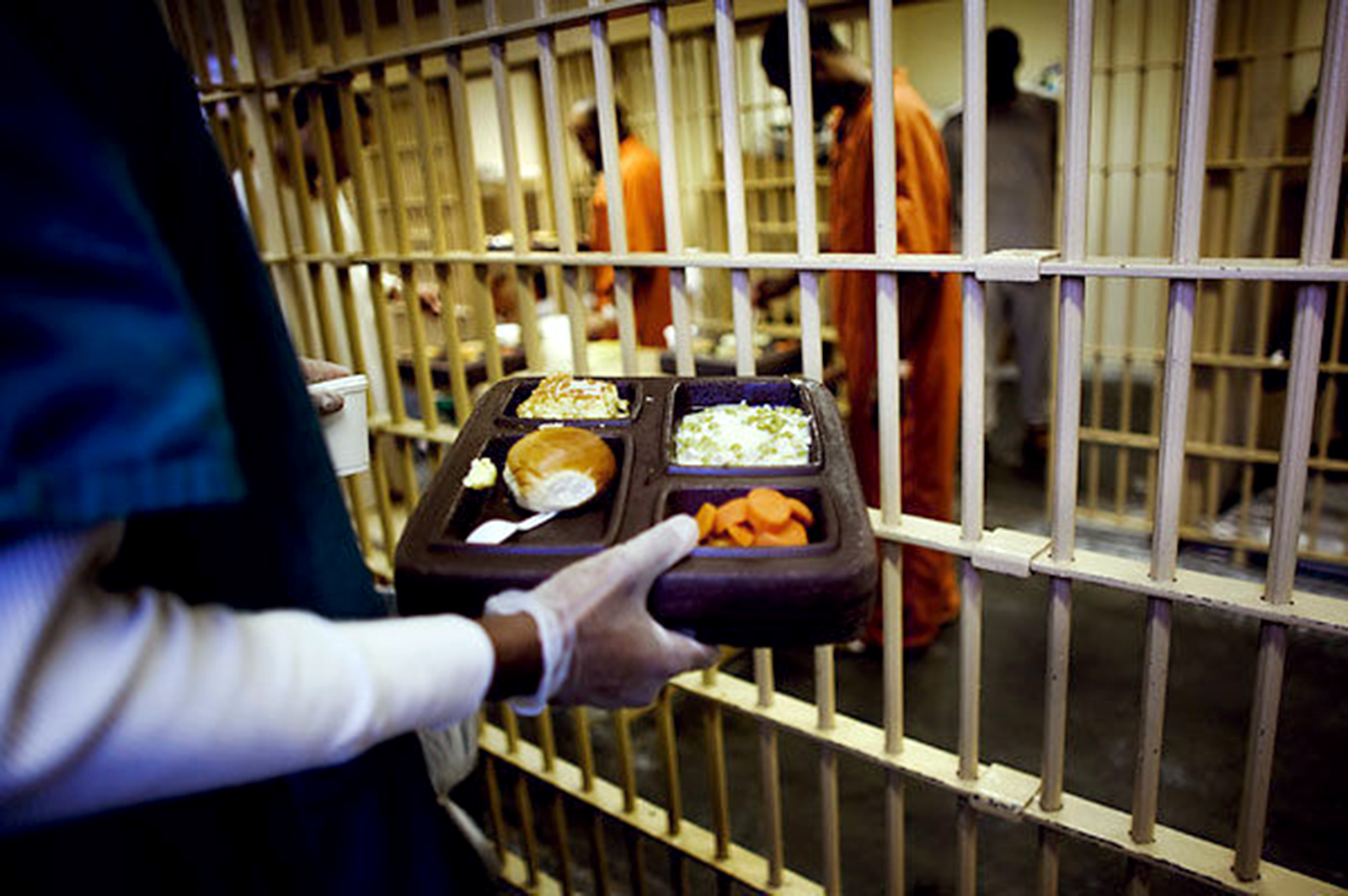
Across the Atlantic in Italy, where the virus has brought the country to a standstill, six prisoners died and 50 escaped after riots broke out in six prisons across the country, according to reports. Inmates lit mattresses on fire in one prison and in another, took officers hostage and stole their keys. In Milan, the epicenter of the outbreak, prisoners were seen standing on roofs after the prison limited visitor access and put the prison on lockdown.
Rojas also told ABC News that riots in Federal prisons are a “legitimate concern” and that it is something of which leaders should be wary.
ABC News' Alexander Mallin contributed to this report.
